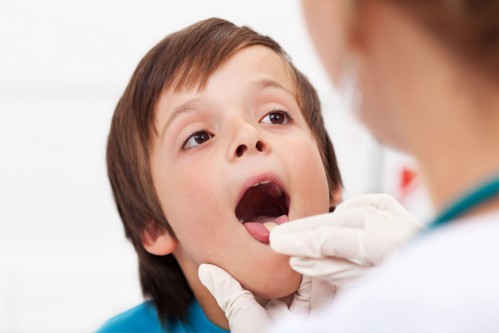
Obesity: the New Epidemic?
Author: Jenifer Bassett, MD, FAAP
For the first time in history, today's generation of children have a shorter life expectancy than their parents. The cause of this is obesity. One in three children in the United States is overweight (along with two out of three adults). The problems associated with obesity are well known. Several are listed in the box below. In addition to health problems, obesity has a significant impact on mental health and on personal, academic and financial success.
Obesity occurs when the number of calories eaten exceeds the number of calories required for growth and activity. Most parents become concerned when their children show signs of obesity. Many, however, are not sure how to address the problem.
What can I do for my kids?
There are several things you can do! Many of them are easy. Choose one or two and try them on your family.
First, drop out of the Clean Plate Club. Don't make your children clean their plates. This is something most of us had to do when we were young. Unfortunately, it may teach kids to ignore their body's signal to stop eating when they are full. Let kids choose their own portions, or start them off with small portions and give them more if they need it. It is okay to insist that your kids try a small amount of each food on their plate.
Use food to satisfy hunger. Avoid using food to treat boredom or sadness. Use rewards other than food for good behavior.
Make sure your kids eat breakfast. The best breakfast includes some protein. Kids who skip breakfast are less likely to be active during the day and are more likely to overeat at lunch and supper.
Have all family members eat at the table. This discourages eating for entertainment and boredom. Avoid eating in front of the television.
Eat at home as much as possible. People tend to eat more when they eat out and, as we all know, fast food tends to be high in calories and limited in nutritional value. Avoid super sizing portions, even if it seems like a bargain in the short run.
Limit screen time. Screen time is time spent watching television, using the computer and playing video games. There is a strong correlation between screen time and obesity. Kids aged 2-17 should have no more than two hours of screen time per day. Kids under two should have little to no screen time. Encourage active play.
Pay attention to the snacks you have in your home. If you have chips, cookies and soda in the house, your kids will eat them (and so will the adults!). Stock the house with healthy snacks, such as fruits and vegetables. It helps if the healthy snacks do not require extensive preparation. For example, fruits and vegetables can be washed and cut up in advance, so they are ready to eat.
Encourage kids to drink water and low fat (skim or 1%) milk to quench their thirst. Soda is a major source of excess calories in children. Fruit juice is another. We often think of fruit juice as "healthy", but in fact, there are more calories in 8 ounces of pure orange juice than there are in the same volume of Coke Classic!
Make sure your kids get adequate sleep. Believe it or not, there is a strong correlation between inadequate sleep and obesity.
When introducing a new food or routine to your kids, expect some resistance. Don't give up! Kids often need to be exposed to a new idea several times before they accept it.
Skip dessert. This may sound drastic. However, dessert can add unnecessary calories in a couple of different ways. We usually require that kids finish their dinner before they can have dessert. This is better than having them eat ONLY dessert but, again, it prompts kids to eat food they may not be hungry for. Also, many kids will try to skip eating healthy food and focus solely on dessert. Both of these problems can be solved by eliminating dessert from the family meal altogether. There are plenty of opportunities to give your family treats without having it become an expectation at every meal. You might be surprised at how quickly your family will adjust to this.
Do your best to set a good example. Your kids are more likely to adopt a healthy lifestyle if they see you doing the same.

Related Articles

Pediatric Medicine
Strep/Sore Throat
My child has a sore throat, how do I know if it is strep throat? It is important to remember that...

Pediatric Medicine
Fever FAQ
Most of the time, fever is not a medical emergency and can wait until the next morning to be seen in...

Pediatric Medicine
Rash after Fever
Fever followed by a rash is common in children. The most common cause is a viral illness called...

Pediatric Medicine
Diarrhea and Vomiting
Vomiting and diarrhea are common in childhood and are most often caused by a viral infection....
